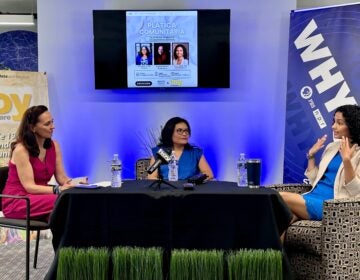Delaware receives $2.4 million to support STEM program for minority students
 Photo via ShutterStock) " title="shutterstock_156508484" width="1" height="1"/>
Photo via ShutterStock) " title="shutterstock_156508484" width="1" height="1"/>
Delaware Technical Community College in Wilmington will receive a $2.4 million federal grant to fund a program offering resources to minority high school students to help them prepare for STEM education.(Photo via ShutterStock)
New federal money will be targeted to young minorities in Delaware. The goal is get more people into science, technology, engineering and math fields so they can be prepared for increased jobs in these areas.
Delaware Technical Community College in Wilmington will receive a $2.4 million federal grant to fund “STEM UP Delaware!” a program that will offer resources to minority high school students to be prepared for STEM education and the perceived job market.
U.S. Sen. Tom Carper, D-Delaware, and Del Tech officials’ announced the five-year grant during an event at the Wilmington campus on Tuesday.
“We need people who have science, engineering and math skills in order for the community to grow,” Carper said. ”If we want the jobs in Delaware we have to make sure the job preparation is in Delaware too.”
The grant, which is funded by the U.S. Department of Health and Human Services, also will be allocated to Del Tech’s partners—Nemours Health & Prevention Services and the Sidney Kimmel Medical College at Thomas Jefferson University—in order to encourage increased interest in the health fields.
The National Science Foundation estimates that 80 percent of all jobs that will be created over the next decade will require some form of science and math skills.
However, U.S. census data shows only 10 percent of the country’s minority groups work in science and engineering fields.
“Over the last several years (decreasing) the shortage of science, technology, engineering and math professionals in the U.S. has been a key priority for not only higher education but the private industry,” said Mark Brainard, president of Del Tech.
“The problem is compounded by the lack of minority representation in the STEM workforce.”
In Delaware, minority groups represent less than 10 percent of primary care physicians and less than 2 percent of nurses. Studies also show that in the state black and Hispanic students fall short on math and science test scores.
“Our goal is to work from a pipeline issue and build that pipeline of minority students interested in health-care and get them tools and support they need to be successful,” said Paul Morris, assistant vice president of workforce development at Del Tech.
The program will provide STEM education, Saturday Health Care Academies, research projects, tutoring services, dual enrollment, career fairs and comprehensive summer programs that include both academic enrichment and experiential learning opportunities.
Morris said if educators can target students at a younger age, even if they’re not inclined to be a scientist in the future, they can help them improve in those subject areas.
He said educators can show students the career fields they might be interested in—part of that is to make learning interesting.
“You do it through subjecting them to the career fields, taking them on trips, college tours, meeting other students who are older than them who have achieved, who look like them,” Morris said. “Science and math can be fun so you show them that fun side.”
The program is open for New Castle County students in grades 8 through 12, and will serve 40 8th and 9th grade students in the fall. Del Tech plans to enroll 100 students by 2019.
Brainard said it’s important to educate students on career possibilities they might be unaware of.
At Del Tech alone, students can start careers in everything from nuclear medicine to exercise physiology and occupation physical therapy. Students also can create careers in engineering fields like cyber-security and energy.
It’s not only about additional opportunities for our students, but about the economic health and vitality of our country,” Brainard said.
WHYY is your source for fact-based, in-depth journalism and information. As a nonprofit organization, we rely on financial support from readers like you. Please give today.





